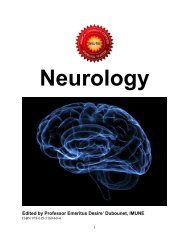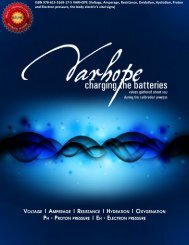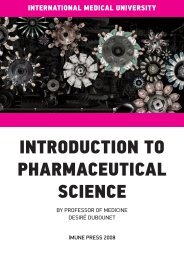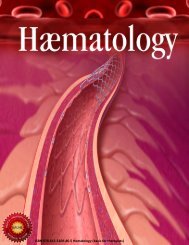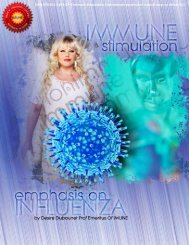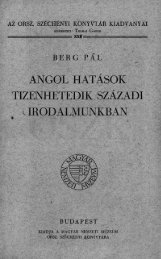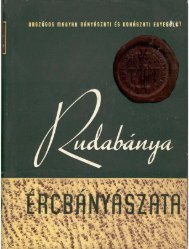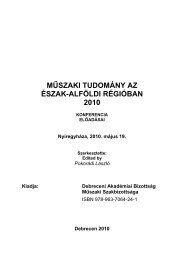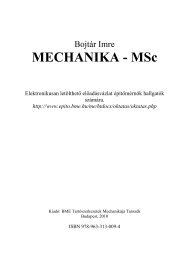You also want an ePaper? Increase the reach of your titles
YUMPU automatically turns print PDFs into web optimized ePapers that Google loves.
Fruitarian definition of fruit<br />
Commonly the term “fruit” is used when referring to plant fruits that are sweet, fleshy and contain<br />
seeds within the plant fruit (for example, plums, apples, and oranges). However, there are other<br />
foods that are not typically considered to be fruits in a culinary sense but are botanically, such as<br />
berries, bell peppers, eggplant, tomatoes, cucumbers, nuts and grains.<br />
Fruitarians use differing definitions of what is considered a “fruit.” For example, Herbert M.<br />
Shelton, a founder of Orthopathy, included non-fleshy fruits, such as nuts, within the definition<br />
of fruit.<br />
Motivation<br />
Some fruitarians believe fruitarianism was the original diet of humankind in the form of Adam and<br />
Eve based on Genesis 1:29. They believe that a return to an Eden-like paradise will require simple<br />
living and a holistic approach to health and diet. Some fruitarians wish, like Jains, to avoid killing<br />
anything, including plants, and refer to Ahimsa fruitarianism. Some fruitarians say that eating<br />
some types of fruit does the parent plant a favor and that fleshy fruit has evolved to be eaten by<br />
animals, to achieve seed dispersal. So we have an environmental symbiosis and sharing the planet.<br />
Scientific studies<br />
A diet high in fruits and vegetables provides the nutrients your body needs for energy and<br />
maintenance. Aim for at least five servings of fruits and vegetables daily.<br />
Definition of fruitarian<br />
Some fruitarians will eat only what falls (or would fall) naturally from a plant; that is: foods that can<br />
be harvested without killing the plant. These foods consist primarily of culinary fruits, nuts, and<br />
seeds. According to author Adam Gollner, some fruitarians eat only fallen fruit. Some do not eat<br />
grains, believing it is unnatural to do so, and some fruitarians feel that it is improper for humans to<br />
eat seeds as they contain future plants, or nuts and seeds, or any foods besides juicy fruits. Others<br />
believe they should eat only plants that spread seeds when the plant is eaten. Others eat seeds<br />
and some cooked foods. Some fruitarians use the botanical definitions of fruits and consume<br />
pulses, such as many beans and peas or legumes, or pulses and legumes. Still further definitions<br />
include raw fruits, dried fruits, nuts, honey and olive oil, or fruits, nuts, beans and chocolate<br />
Dental studies<br />
In 1979, Professor Alan Walker, a Johns Hopkins University paleoanthropologist reported that<br />
preliminary studies of unmarked tooth enamel in early hominoids suggested that pre-human<br />
ancestors apparently had a diet of mostly fruit. Walker said, “I don’t want to make too much<br />
of this yet. But it is quite a surprise.” The Price Potinger Institute has lots of work validating the<br />
concept of fruitarianism’s healthy aspect for good dental health.<br />
Clinical studies<br />
In 1971, a short-term study by B. J. Meyer was published in the South Africa Medical Journal<br />
] describing how lipid profiles and glucose tolerances improved on a particular fruitarian diet.<br />
An earlier 1971 study by Meyer tested a 45 year old teacher who claimed she had eaten only<br />
fruits and seed products for the past 12 years, who was found to be in “excellent health”. The<br />
study confirmed that body weights of overweight subjects showed a tendency to “level off” at the<br />
“’theoretically ideal’ weight” when on a fruitarian diet.<br />
Nutritional concerns<br />
Nutritional deficiencies<br />
As a very great vegan diet, fruitarianism is highly restrictive, making nutritional adequacy difficult.<br />
The Health Promotion Program at Columbia University reports that a fruitarian diet can cause<br />
deficiencies in calcium, protein, iron, zinc, vitamin D, most B vitamins (especially B12), and<br />
essential fatty acids. Additionally, the Health Promotion Program at Columbia reports that food<br />
restrictions in general may lead to hunger, cravings, food obsessions, social disruptions and social<br />
isolation. The body can make calcium from potassium if there is a degree of spiritual purity. So to<br />
be a fruitarian takes some degree of mental and emotional control.<br />
Vitamin B12<br />
Vitamin B12, a bacterial product, is not found in any fruits. According to the U.S. National Institutes<br />
of Health “natural food sources of vitamin B12 are limited to foods that come from animals.”] Like<br />
raw vegans who do not consume B12-fortified foods (certain plant milks and breakfast cereals,<br />
for example), fruitarians may need to include a B12 supplement in their diet or risk vitamin B12<br />
deficiency. The body can make B12 if the bowel flora is perfect and the intrinsic factor from the<br />
stomach lining is present. But only if both need to be perfect.<br />
86 87



